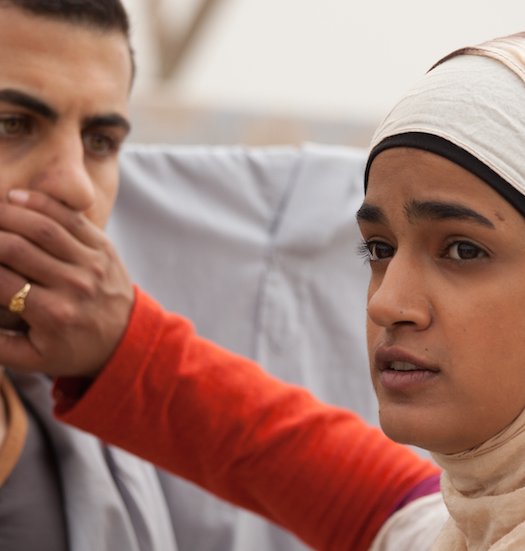The only way to avoid a flop film is to not do a film – Emraan Hashmi
Emraan Hashmi has come a long way from being tagged as Bollywood’s ‘serial kisser’ to becoming one of the most unconventional and critically acclaimed actors today. With movies like Once Upon A Time In Mumbai, The Dirty Picture, and Shanghai, Emraan has time and again showcased his versatility.
With his upcoming film Azhar, the actor adds another feather to his hat as he steps into the shoes of noted cricketer Mohammad Azharuddin. The film deals with the cricketer’s life, his journey and the controversy that gripped everyone’s attention in the 90s. We caught up with Emraan to know more about the film, his struggles and how he molded himself into the character.

Emraan Hashmi
What were producer Ekta Kapoor’s expectations from you while you were portraying the character of Mohammad Azharuddin?
She expected the world from me. Ekta wanted me to portray the character as accurately as I could. At the time when she approached me, they didn’t have a script. They only knew that they wanted to make a film on Azhar’s life. So a lot of research was done and the script was finally drafted. However Azhar bhai actually rejected the script once as he didn’t want a film to be made on his life. But he finally said yes and that really helped because once he came on board, he shared a lot of personal moments of his life that were incorporated in the script.
Azhar bhai actually rejected the script once as he didn’t want a film to be made on his life
How did you get into the skin of Azhar’s character?
He has had this romance with cricket. He is a great batsman and has a very different kind of swagger, charm and charisma on the field, which I have followed through the 80s and 90s and that really helped me. But I had to approach the movie in a very different way as I was working as an actor who is trying to imitate him on screen. Therefore, it required me to watch all his matches again and see the nuances of how he did things on the field.
Can you shed some light on how you adopted the physical attributes of Azharuddin in the film?
Overcoming the height difference is easy, you just wear in-soles and that does it, but playing cricket was tough (laughs). It was taxing on my back so that was one difficult thing. I had to lose weight because when he was 21 and he came into the team, he was very thin. It took me a while to completely adapt to an athletic lifestyle. I had to play a lot of cricket; we used to have some 100 to 150 throw-balls everyday which went on for three months. There was a talented team that made me look like the character through the hair and costume, but overall it was physically grilling to look a certain way in each phase of his life.
As far as the performance goes, there are a lot of things coming together in parts – his body language, the way he spoke, the way he walks and a lot of things. We have taken some creative liberty in the way he used to talk as there are certain dialogues that are said in a certain way. The cricketing shots were the most difficult because that could have garnered the most criticism as people have seen him play cricket very closely, so we had to be as accurate as possible.
I had to incorporate and try to imitate almost 30 years of Azharuddin’s experience in three months
What was the one aspect of portraying Azharuddin that you loved?
My personal favorite was also the thing that I was worst at, and that is cricket. I had to learn it for three months, but it was great fun because the man himself was training me and he was very forthcoming and I think that it was his dedication that really helped me to learn much faster. I had to incorporate and try to imitate almost 30 years of his experience in three months.
READ: EMRAAN HASHMI PICKS UP AZHAR’S MANNERISMS

Emraan Hashmi in Azhar
And what has been your take-away from this film?
I guess the fact that the man really had a lot of inner strength and patience to go through what he went through. His career was snatched away from him when he was at his peak and that is a very tough spot to be in.
Jannat also touched upon cricket and match-fixing. Do you think the audience will draw parallels between the two films?
There are shades of Jannat in this, but Azhar is a more complex film, Jannat was primarily a love story with match-fixing as a sub plot. This film takes match-fixing head-on and in detail. Azhar shows cricket in its darkest phase along with the inspirational phase. But yes, I think one of the reasons why they came to me is because Jannat was a film where I had touched upon that issue.
Tell us about your association with director Tony D’Souza.
It was fantastic. He is extremely professional and is a great technician and that can clearly be seen in the way he shot the match shots. He is an amazing storyteller and has been dedicated (to this film) for the past year and a half. He has actually worked more than any of us as he has been scripting with Rajat Arora.

With Mohammad Azharuddin
We’ve seen a lot of real-life inspired movies in the last year. Do you feel any pressure about how the audience will perceive Azhar?
No, I think the pressure is with any film. I know that currently there is a trend of biopics and real life stories and that is a good thing. As far as Azharuddin’s story is concerned, people have followed it for years. His story was something the entire nation was lapping up when the controversy came up.
Can you share something about your upcoming projects?
I’ve just finished Raaz 4 and it is releasing in September. The other films have not really started off but they will soon.
As someone who has seen a lot of ups and downs in his career, what motivates you to keep going?
As an actor it is very important for me to approach every film honestly. There are a lot of variables that play when the film releases, some films do well and some films don’t. But I don’t get deterred. Box-office wise it may have not done well but I don’t regret the fact that I did the film because it’s all a learning experience. The only way to avoid a flop film is to not do a film. It is very important to just dust yourself after that weekend and then move on to the next one.
-Transcribed by Aarti Sukhija



